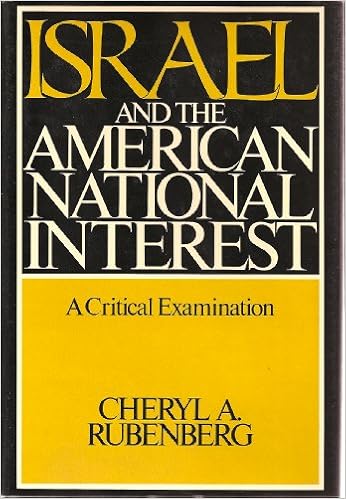
Cheryl A. Rubenberg (born 1946) is a writer and researcher who was formerly an associate professor of Political Science at Florida International University. She is also the author of The Palestinians: In Search of a Just Peace,Palestinian Women: Patriarchy and Resistance in the West Bank,Palestine Liberation Organization: Its Institutional Infrastructure (IAS monograph series), and Encyclopedia of the Israeli-Palestinian Conflict.
She wrote in the Preface to this 1986 book, "When I first began (this) work, my perceptions of Israel, of U.S. foreign policy, and of the international system in general conformed to the dominant views and conventional wisdom in American political culture... I gradually arrived at a world view quite unlike what I possessed (previously)... The process of arriving at where I am today has been long and sometimes painful, though always rewarding... It must be stated at the outset that this book does not purport to be objective in the sense of being value-free and scientifically neutral... let me state categorically that I recognize the existence of Israel and its right to continued existence in peace within secure and recognized boundaries. However, WHAT boundaries consitute the state of Israel is one of two crucial questions... I would also like to add that while I have been harshly critical of Israel and the United States in this book... in other contexts I have been equally critical of the Arab governments."
Here are some additional quotations from the book:
"The magnitude of American misunderstanding of the Arab-Palestinian-Israeli conflict is suggested... by the little-known statistic that the total number of Israeli civilians killed in all acts of terrorism from 1967 to 1982 was 282, less than the number of Arab civilians killed in ONE Israeli bombing raid of Beruit on July 17-18, 1981." (Pg. 3)
"American support for the creation of the state of Israel was based primarily on domestic policy considerations, not on calculation of U.S. national interest." (Pg. 48)
"It must be noted, though, that the U.S. choice of Arab partners among the various factions in the area was far from astute..." (Pg. 85)
"(T)he power of the Israeli lobby over the formation and execution of U.S. Middle East policy has become a virtual strangelhold." (Pg. 375)
No comments:
Post a Comment